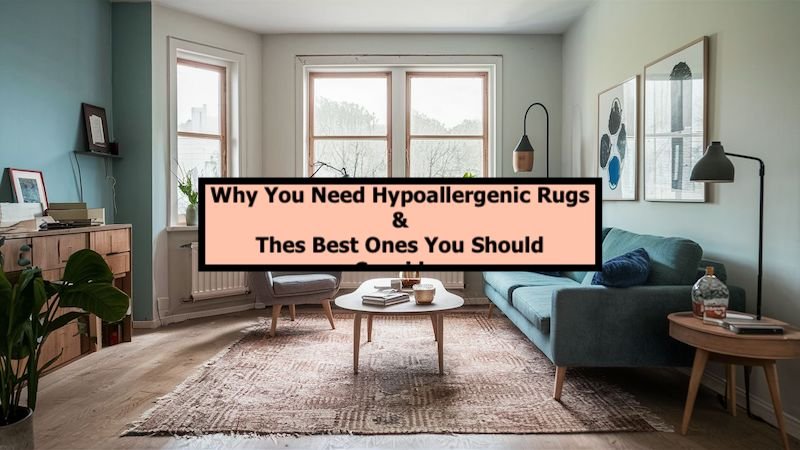Imagine stepping out of the shower with freshly washed hair and thoroughly cleaned scalp, only to be met with an unwelcome itch. You run your fingers through your hair, encountering irritation and redness. This scenario is all too familiar for many people who struggle with Nickel allergy triggered by common (but hidden) shampoo ingredients.
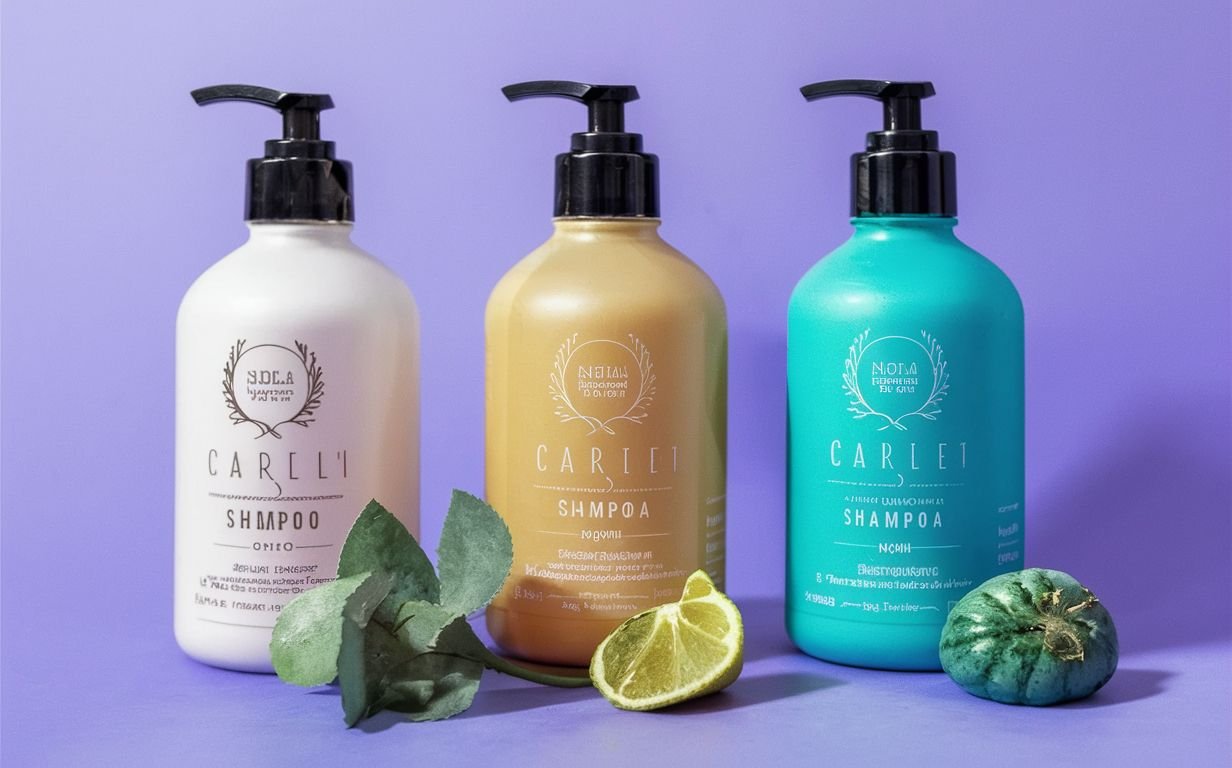
For those experiencing discomfort after using traditional shampoos, there’s hope! Hypoallergenic shampoos formulated to minimize the risk of allergic reactions can be a game-changer.
This is especially true for those sensitive to common ingredients like nickel, coconut oil, and citric acid. The journey to a comfortable, itch-free scalp begins with understanding what goes into our shampoo bottles and choosing products that respect our body’s unique needs. Hypoallergenic shampoos, free from these irritants, offer a beacon of hope.
Imagine a world where your shampoo not only leaves your hair feeling revitalized and looking lustrous but also nurtures your scalp’s health without any fear of irritation or allergic reactions. This article aims to bridge the gap between you and that ideal product, ensuring your hair care routine is as safe as it is satisfying. Whether you’re already on the hunt for such specific hair care solutions or just starting to explore the benefits of hypoallergenic products, you’re in the right place.
Understanding Hypoallergenic Shampoos
The term “hypoallergenic” is more than just a label; it’s a promise of gentleness on your skin and hair. Hypoallergenic shampoos are specifically formulated to minimize the risk of allergic reactions, making them ideal for individuals with sensitive skin or specific allergies. But what does it truly mean for a shampoo to be hypoallergenic, especially in a market flooded with countless personal care products claiming to be “safe for sensitive skin”?
The Common Allergens in Shampoos
Hypoallergenic shampoos strive to exclude ingredients known to cause allergic reactions or irritate sensitive skin. Among these are nickel, coconut oil, and citric acid—each presenting unique challenges to certain users. Nickel, though less commonly known as a shampoo ingredient, can be present in trace amounts and trigger allergic dermatitis. Coconut oil, a popular moisturizing agent, can cause issues for those with specific allergies or pore-clogging concerns. Citric acid, used to adjust the pH of shampoos, might irritate sensitive scalps.
Best Hypoallergenic Shampoo Without Citric Acid, Nickel or Coconut oil – Our Pick
Cleure Volumizing Shampoo
This shampoo does not contain SLS (sodium lauryl sulfate), essential oils, fragrances, gluten, parabens, detergents, or citric acid.
Ingredients at the time of writing this article include:Purified Water, Sodium C14-16 Olefin Sulfonate, Disodium Cocoamphodiacetate, Cocamide MEA, Glyceryl Caprylate, Caprylhydroxamic Acid, Glycerin, Polyquaternium-7, Polyquaternium-10, Sodium Chloride.
The Best All-Round Hypoallergenic (Essential Kit)

Best Nickel-free, Citrus Acid-free, and Coconut-free Body Lotion
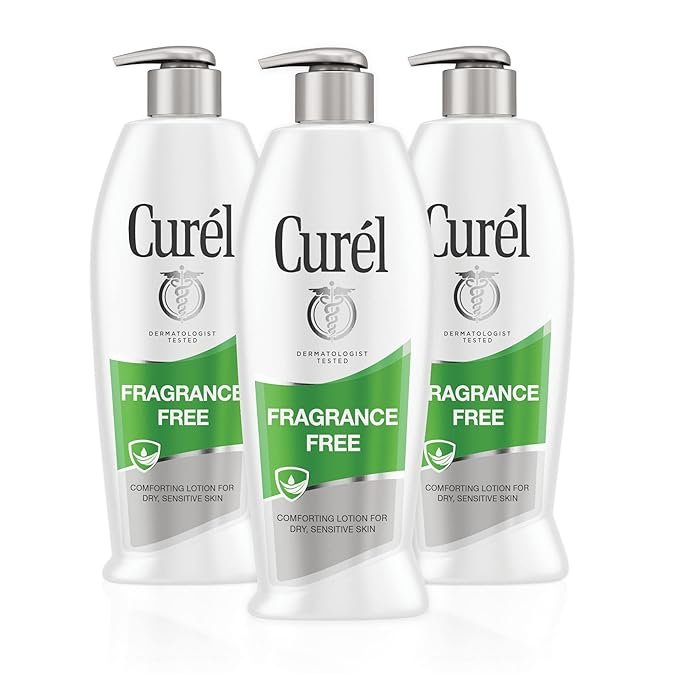
Ingredients: water, glycerin, distearyldimonium chloride, petrolatum, isopropyl palmitate, cetyl alcohol, dimethicone, methylparaben, ethylparaben, sodium chloride, cetyl-pg hydroxyethyl palmitate, butylene glycol, eucalyptus globulus leaf extract, sodium lauroyl lactylate, acacia senegal gum, gelatin, ceramide NP, ceramide AP, cholesterol, phytosphingosine, carbomer, xanthan gum, ceramide EOP
Why Nickel and Coconut Oil Can Be Problematic
Nickel’s role as an allergen is more prominent in jewelry and metal products, but its presence in personal care products cannot be overlooked. Sensitivity to nickel can lead to contact dermatitis, characterized by redness, itching, and discomfort. On the other hand, coconut oil, despite its hydrating properties, can be an allergen for some individuals. Its molecular structure allows it to penetrate the hair shaft, which is beneficial for most but can lead to reactions in those with a coconut allergy.
The Lesser-Known Irritant: Citric Acid
Citric acid is often lauded for its ability to balance the pH of cosmetic products, making them more compatible with the natural pH of our skin and scalp. However, for individuals with extremely sensitive skin, citric acid can disrupt the skin’s protective barrier, leading to irritation and sensitivity.
These ingredients, along with others like fragrances and sulfates, can trigger unpleasant allergic reactions. Recognizing the symptoms is key if you suspect an allergic reaction to your shampoo. These often include:
- Itching
- Redness
- Dryness
- Flaking
- Burning sensation
Benefits of Hypoallergenic Shampoos
Hypoallergenic shampoos are formulated with the specific needs of sensitive scalps in mind. Here’s how they can bring relief:
- Minimize Allergic Reactions: Hypoallergenic shampoos significantly reduce the risk of an allergic reaction by omitting common allergens like nickel, coconut oil, and citric acid.
- Gentler Cleansing: Often free of harsh sulfates, these shampoos cleanse effectively while being gentler on the scalp. This can help maintain a healthy scalp environment and prevent irritation.
- Soothing Properties: Many hypoallergenic shampoos incorporate calming and moisturizing ingredients like oatmeal, aloe vera, and chamomile. These ingredients can soothe itching, reduce inflammation, and promote overall scalp health.
By switching to a hypoallergenic shampoo, you might experience significant improvements like reduced itching, soothed irritation, and a healthier, more comfortable scalp.
The Quest for the Perfect Shampoo: Beyond Common Allergens

Finding a shampoo that meets all your sensitive skin needs can feel like searching for a needle in a haystack. For those with allergies to nickel, coconut oil, or citric acid, the challenge is not just about avoiding these specific ingredients but understanding the broader context of what makes a shampoo truly hypoallergenic and safe for their unique skin and scalp conditions.
Understanding Ingredient Labels
One of the first hurdles in this quest is deciphering ingredient labels. Cosmetic labeling can be complex, with ingredients often listed under their scientific names. For instance, nickel may not be explicitly listed, but its presence can be implied through colorants or fragrances. Similarly, derivatives of coconut oil can appear under various names, making it tricky for the untrained eye to spot them. Learning to recognize these hidden allergens requires patience and diligence.
The Challenge of Incomplete Disclosure
Another obstacle is manufacturers’ incomplete disclosure. Not all components of a fragrance or proprietary blend are required to be listed, leaving consumers guessing about potential allergens. This lack of transparency makes it even more critical for individuals with sensitivities to choose brands that are committed to full ingredient disclosure.
Misleading Claims and Marketing
The beauty industry is notorious for its marketing jargon, with terms like “natural,” “for sensitive skin,” or even “hypoallergenic” often used loosely. Just because a product claims to be suitable for sensitive skin doesn’t guarantee it’s free from all common allergens. Skepticism and a critical eye when evaluating these claims can prevent unwelcome surprises.
Navigating Through Trial and Error
Ultimately, finding the right hypoallergenic shampoo often involves a process of trial and error. What works for one person’s sensitivities may not work for another’s. This journey, while sometimes frustrating, is also an opportunity to become more in tune with your body’s reactions and preferences. Embracing this process with patience and optimism is key to discovering your ideal hair care regimen.
In summary, the quest for the perfect hypoallergenic shampoo is both a challenge and an opportunity. By becoming savvy about ingredient labels, demanding transparency from brands, and cautiously navigating marketing claims, you can find a shampoo that not only avoids your specific allergens but also nourishes and respects your skin and hair’s unique needs.
Shampoos Without Nickel
Identifying and selecting products without nickel is a crucial step in finding a hypoallergenic shampoo that caters to sensitive skin. While nickel is more commonly associated with metal allergies, its presence in shampoo, albeit indirectly, can pose risks for those with heightened sensitivity. Understanding how to navigate this terrain is essential for maintaining a healthy, irritation-free scalp.
Why Nickel in Shampoo Matters

Nickel’s potential presence in shampoos might come as a surprise, given its metallic nature. However, trace amounts can be introduced through water used in manufacturing or as part of colorants and other ingredients. For individuals with a nickel allergy, even minimal exposure can trigger allergic contact dermatitis, leading to itching, redness, and discomfort.
Identifying Nickel-Free Hypoallergenic Shampoos
The key to finding nickel-free shampoos lies in understanding ingredient lists and choosing products from brands that prioritize transparency and cater to allergy-prone individuals. Look for shampoos that:
- Are explicitly labeled as “nickel-free.”
- Come from brands that specialize in hypoallergenic or dermatologist-recommended products.
- Have minimal ingredient lists, reducing the likelihood of nickel contamination.
Tips for Selecting Nickel-Free Shampoos on Amazon
Amazon offers a vast selection of shampoos, making it a convenient platform for finding nickel-free options. To ensure a wise choice:
- Utilize the search feature with terms like “nickel-free shampoo” or “hypoallergenic shampoo for sensitive skin.”
- Read product descriptions carefully to confirm the absence of nickel and other irritants.
- Check customer reviews and Q&A sections for insights from individuals with similar sensitivities.
- Look for products that are tagged or have certifications indicating they are free from common allergens, including nickel.
The Role of Patch Testing
Even with thorough research, the ultimate test for a nickel-free shampoo’s suitability is how your skin reacts to it. Conducting a patch test before fully integrating a new shampoo into your routine can help identify any adverse reactions in a controlled manner. Apply a small amount of the product to a discreet area of your scalp or skin and wait 24 to 48 hours to observe any signs of irritation. Repeat for a minimum of one week for a more accurate result.
Navigating the World Without Coconut Oil in Hair Care
Coconut oil has been celebrated for its moisturizing and strengthening properties in hair care, but for some individuals, this popular ingredient is off-limits due to allergies or sensitivities. Most individuals who suffer from Nickel allergy also experience similar allergic reactions to coconut. Understanding why coconut oil might not be suitable for everyone, especially if you have a coconut allergy, and identifying effective alternatives is crucial for maintaining healthy hair without compromising on comfort.
The Popularity and Pitfalls of Coconut Oil
Coconut oil’s popularity in shampoos and other hair care products is largely due to its ability to penetrate the hair shaft, offering deep moisturization and protection against protein loss. However, for individuals allergic to nickel and hence coconut, since coconut is mildly high in nickel or those with skin prone to clogged pores (acne-prone scalp), it can cause allergic reactions, skin irritation, or exacerbate scalp acne, making it essential to find coconut oil-free alternatives.
Identifying Coconut Oil-Free Shampoos
When searching for shampoos without coconut oil, it’s important to recognize all the names it may be listed under, such as:
- Cocos nucifera (coconut) oil
- Caprylic/capric triglyceride (derived from coconut oil)
- Cocamidopropyl betaine (derived from coconut oil)
Reading ingredient labels carefully is key to avoiding products containing coconut oil or its derivatives.
Coconut Allergy Shampoos – Alternatives to Coconut Oil in Hair Care
For those avoiding coconut oil either due to coconut allergy, nickel allergy or simply having a more sensitive scalp, plenty of nourishing alternatives can keep hair healthy and hydrated. These are the best alternatives for coconut allergy shampoo:
- Argan oil offers similar moisturizing benefits without the risk of allergic reactions for most people.
- Shea butter is a great alternative for deep moisture, especially for curly or dry hair types.
- Jojoba oil closely mimics the scalp’s natural oils, providing moisture without clogging pores.
The Citric Acid-Free Solution: Why It Matters
Citric acid, a common ingredient found in many shampoos and personal care products, is celebrated for its ability to balance pH levels, promoting a healthy scalp environment. However, for a subset of individuals with highly sensitive skin or specific allergies, citric acid can be an irritant, causing scalp discomfort and exacerbating sensitivity issues. Recognizing the need for citric acid-free alternatives is crucial for those looking to maintain scalp health without compromise.
Understanding Citric Acid’s Role and Risks
Citric acid naturally adjusts the pH of shampoo to prevent the hair cuticle from swelling, resulting in smoother, less frizzy hair. Despite these benefits, its acidic nature can disrupt the scalp’s protective barrier in sensitive individuals, leading to irritation or allergic reactions. This necessitates the exploration of shampoos formulated without citric acid for those affected.
Finding Citric Acid-Free Shampoos
Identifying shampoos free from citric acid involves meticulous label reading, as citric acid is often used not only for pH adjustment but also as a preservative or fragrance component. Here are tips for navigating this search:
- Look for products specifically marketed as “citric acid-free” or designed for “extremely sensitive skin.”
- Familiarize yourself with alternative names and derivatives of citric acid to ensure thorough avoidance.
- Consider brands that focus on minimalistic or “free-from” formulations, as they’re more likely to offer citric acid-free options.
TOP 3 Citric Acid-free Shampoos
Citric acid can be a double-edged sword in hair care. While it helps some shampoos achieve a balanced pH level and enhance shine, it can irritate sensitive scalps. If you’re looking for a gentle, citric acid-free option, here’s a detailed look at the three brands you mentioned:
- Pros:
- Extra Gentle: Perfect for sensitive scalps, babies, and those with eczema or psoriasis.
- Tear-Free Formula: Makes bath time a breeze for little ones and avoids stinging eyes.
- Citric Acid-Free: As advertised, it caters to those who want to avoid citric acid’s potential irritation.
- Budget-Friendly: An affordable option for everyday use.
- Cons:
- Limited Cleaning Power: Due to its mildness, it might not be strong enough for very oily hair or those needing a deep cleanse. Frequent washing might be required.
- May Not Be Enough for All Hair Types: The gentle formula might lack the conditioning power needed for thicker, drier hair types. It might leave hair feeling limp or flat.
Recommendation: A great choice for sensitive scalps and occasional washes, but might not be suitable for all hair types or those needing a stronger clean.
- Pros:
- Hydration Hero: Dove shampoos are famous for their nourishing formulas, leaving hair feeling soft and manageable.
- Citric Acid-Free (Generally): Most Dove shampoos likely avoid citric acid, but always double-check the ingredients list for the specific product you choose.
- Variety of Options: Dove offers a wide range of shampoos formulated for different hair types and concerns, including those with color-treated or damaged hair.
- Cons:
- Potential for Build-Up: The rich moisturizing properties, while great for dry hair, might lead to product build-up on the scalp for some users, especially those with fine hair. Regular scalp clarifying treatments might be necessary.
- Cost: Dove shampoos tend to be pricier than Johnson’s Baby Shampoo.
Recommendation: A good option for dry or damaged hair that needs moisture, but be mindful of potential build-up if you have fine hair. Explore their citric acid-free options within their range.
- Pros:
- Citric Acid-Free Options: Aussie offers a vast selection of shampoos, including those formulated without citric acid.
- Hair Type Variety: You’ll find options for most hair types, from dry and damaged to fine and limp.
- Affordability: Generally falls within a mid-range price point.
- Cons:
- Varied Effectiveness: It doesn’t come in one-shoe-fits-all size. The effectiveness can differ depending on the chosen Aussie shampoo formula. Some might be more suitable for specific hair types than others. Research user reviews for specific options.
Recommendation: Aussie offers the most variety to explore based on your hair type and desired outcome. However, finding a citric acid-free option requires careful checking of the ingredients list.
Other skincare and beauty products that are citric acid-free
Lotions And Cleansers
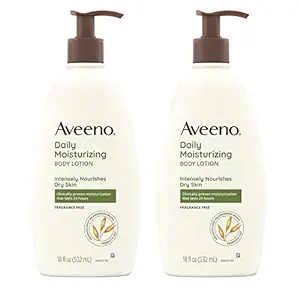
Aveeno Baby Daily Moisturizer: This moisturizer is a gentle, nourishing option for not just babies, but anyone with sensitive skin. Free from citric acid and its derivatives, it hydrates and protects the skin, leaving it soft without causing irritation. Its non-greasy formula absorbs quickly, making it a hassle-free addition to daily skincare routines.
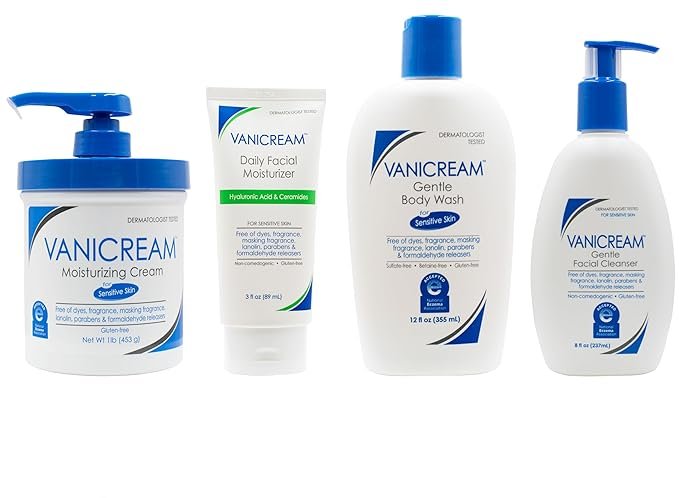
Vanicream Essential Kit: Ideal for those with sensitive skin, this kit contains the usual moisturizing cream, gentle body wash, facial cleanser, and daily facial moisturizer. Vanicream’s line of products is no stranger to people with sensitive skin and hair. They offer deep moisturization without the common chemical irritants found in many other lotions, cleansers, and bodywashes. Its lack of citric acid and related compounds ensures that it provides relief for dry skin without any unwanted side effects.
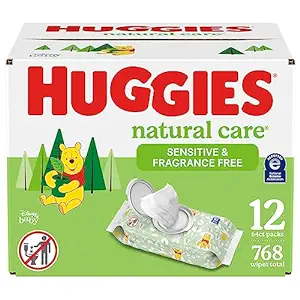
Huggies Natural Care Baby Wipes: Designed for delicate skins, these wipes are also an excellent choice for anyone seeking citric acid-free cleansing options. They’re gentle yet effective for cleaning up messes or freshening up throughout the day without the risk of skin irritation.
Other
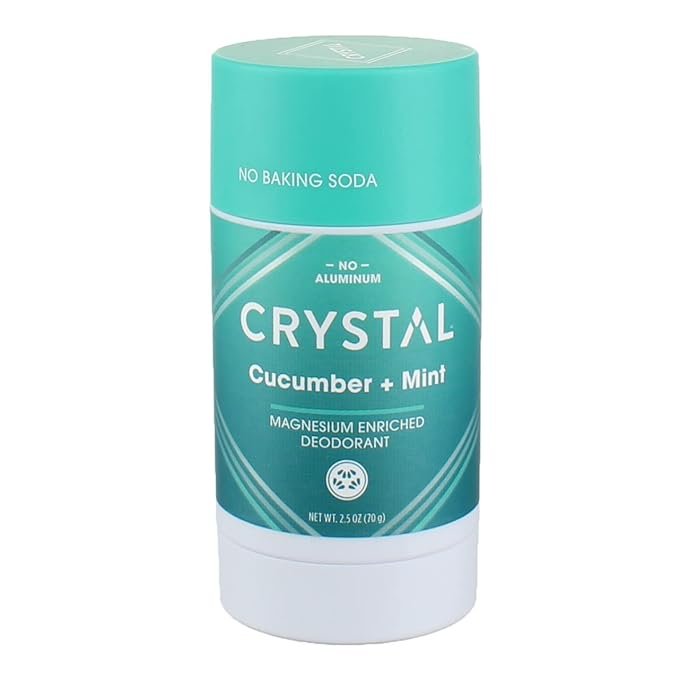
Crystal Deodorant: This natural deodorant option is free from citric acid, offering odor protection through mineral salts that create an invisible protective barrier against odor-causing bacteria. It’s a great choice for those looking for a simple, effective deodorant without unnecessary additives.
Products Free of Synthetic Citric Acid
For individuals avoiding synthetic citric acid but okay with natural derivatives, products like Kirk’s Bar Soap, Palmer’s Products, Prell Shampoo, Tom’s Cavity Protection Toothpaste, and Spry Toothpaste offer suitable options. These products avoid synthetic citric acid, focusing instead on ingredients that won’t irritate sensitive skin or cause reactions for those with specific sensitivities.
Choosing the right products free from citric acid and its derivatives can significantly improve the daily care routine for those with sensitivities or allergies. Each product listed offers a safe, effective option, ensuring that everyone, even the most sensitive skin types, can enjoy the benefits of high-quality skincare and personal care products without worry.
Alternatives for a Healthy Scalp
For individuals avoiding citric acid, alternative ingredients can provide the desired shampoo benefits without the irritation risk. Look for shampoos containing:
- Aloe vera, which offers natural pH-balancing properties and soothes the scalp.
- Vinegar rinses (like apple cider vinegar), known for their natural ability to balance scalp pH and enhance shine, used sparingly alongside your regular shampoo routine.
- Mild, natural preservatives that don’t irritate the scalp or disrupt its pH balance.
Other Hypoallergenic Shampoos that Are Also Nickel-free
Finding the right shampoo for a sensitive scalp can be a challenge. Here’s a breakdown of the top 3 shampoos that are nickel-free, coconut and citric acid, according to hours of research by our research team.
1. Cleure Hypoallergenic Volumizing Shampoo & Hydrating Conditioner Haircare Set:

This shampoo is praised for its use of skin conditioning agents and gentle cleansers that treat a dry scalp effectively. It’s free from sulfates, parabens, artificial fragrances, dyes, alcohol, salicylates, formaldehyde, or SLS, making it suitable for those with sensitive scalps.
- Hypoallergenic and free from sulfates, parabens, formaldehyde, dyes, and fragrances, making it ideal for sensitive scalps.
- Contains skin conditioning agents and gentle cleansers to treat dry scalp effectively.
- Approved and verified by the American Contact Dermatitis Society as an allergen-free shampoo.
2. Vanicream Free & Clear Shampoo:

This is the best hypoallergenic shampoo. It is nickel-free, coconut oil-free, and citric acid-free, period. The allergy communities and most who have tried it highly recommend it. This shampoo is free of dyes, fragrances, lanolin, parabens, formaldehyde, formaldehyde releasers, and other preservatives, aiming to cater to those with sensitive scalps. However, reviews are mixed.
- Pros: This fragrance-free and sulfate-free shampoo is a popular choice due to its gentle formula. Many users report success with scalp sensitivity and irritation.
- Does not leave the hair dried out when used with a conditioner.
- Cons: Some reviewers with dry hair mention it can be slightly drying, and if you ask us, I think it’s worth the shot.
- May not foam as much as conventional shampoos, which could require adjustment in usage for some people.
3. Lavera Volume and Strength Shampoo:
- Natural and Vegan: This shampoo is formulated with natural ingredients and caters to those seeking vegan options.
- Reviews: Many users have praised the Lavera shampoo’s gentle cleansing and volumizing properties.
- Recommendation: If you have a moderately sensitive scalp and prefer natural ingredients, this could be an option. Consider a patch test before full use.
Finding the Right Hypoallergenic Shampoo:
With so many options, choosing the perfect hypoallergenic shampoo requires careful consideration:
- Ingredient Scrutiny: Always check the ingredients list for any known allergens, even in “hypoallergenic” labeled products.
- Hair Type: Hypoallergenic shampoos often cater to specific hair types (oily, dry, color-treated). Choose one that addresses your hair’s needs.
- Patch Testing: Before using any new shampoo, conduct a patch test to rule out any allergic reactions.
Additional Tips:
- Look for shampoos labeled “hypoallergenic” and “fragrance-free.”
- Consider consulting a dermatologist for personalized recommendations, especially for severe scalp sensitivities.
- Maintain a gentle scalp care routine, avoiding harsh scrubbing.
By following these tips and exploring the options above, you can increase your chances of finding a hypoallergenic shampoo that relieves and comforts your scalp.
Tips When Choosing a Hypoallergenic Shampoo
Having identified some hypoallergenic shampoo options, here are some additional considerations to ensure you choose the perfect one for your specific needs:
- Hair Type: Even within the realm of hypoallergenic shampoos, cater to your hair type (oily, dry, color-treated, etc.). Utilize the filter options on Amazon.com to narrow down your search by hair type. Many hypoallergenic shampoos are formulated for specific hair types while still prioritizing a hypoallergenic formula.
- Oily Hair: Look for shampoos with gentle cleansing properties that won’t strip away natural oils but can help manage excess sebum production.
- Dry Hair: Opt for shampoos with hydrating ingredients like shea butter or jojoba oil to combat dryness and promote moisture retention.
- Color-Treated Hair: Sulfate-free formulas are often recommended for color-treated hair, as sulfates can potentially strip away hair color. Many hypoallergenic shampoos are naturally sulfate-free, but double-check to ensure this is the case with your chosen option.
- Fragrance-Free: As fragrance can potentially irritate sensitive scalps, prioritize fragrance-free hypoallergenic shampoos. Most “hypoallergenic” labeled shampoos will also be fragrance-free, but again, always check the ingredients list.
- Sulfate-Free: While not always necessary, some individuals with sensitive scalps find that sulfate-free shampoos are gentler and less drying. Many hypoallergenic shampoos are also sulfate-free, but again, confirm this on the product page.
Additional Tips for Scalp Health
Taking care of your scalp goes beyond just using a hypoallergenic shampoo. Here are some additional tips for maintaining a healthy scalp:
- Patch Testing: Before using any new shampoo, even a hypoallergenic one, test a patch on a small area of your forearm. Apply a small amount of the shampoo and wait 24-48 hours to see if there’s any reaction.
- Scalp Care Practices: Maintain a gentle scalp care routine. Avoid harsh scrubbing or scratching, which can irritate the scalp. Instead, focus on gentle massage techniques to stimulate circulation and promote healthy hair growth.
- Dietary Considerations: Discuss potential dietary modifications with a healthcare professional if you suspect a broader allergy (e.g., nickel). For example, eliminating nickel-rich foods from your diet might be recommended alongside using a nickel-free shampoo if you have a nickel allergy.
Remember: Consulting a dermatologist is always recommended for persistent scalp concerns or if you have any doubts about the best course of action for your specific sensitivities.
By following these tips and using a suitable hypoallergenic shampoo, you can experience significant improvement in scalp health and achieve lasting comfort.
Conclusion: Finding Relief with Hypoallergenic Shampoos
Scalp sensitivities can be frustrating and uncomfortable. However, with the right hypoallergenic shampoo, you can find relief and achieve a healthier, itch-free scalp. Remember to prioritize ingredient scrutiny, consider your hair type, and explore additional scalp care practices for optimal results. Don’t hesitate to consult a dermatologist for personalized guidance.
Have you found success with hypoallergenic shampoos? Share your experiences and recommendations in the comments section below!



